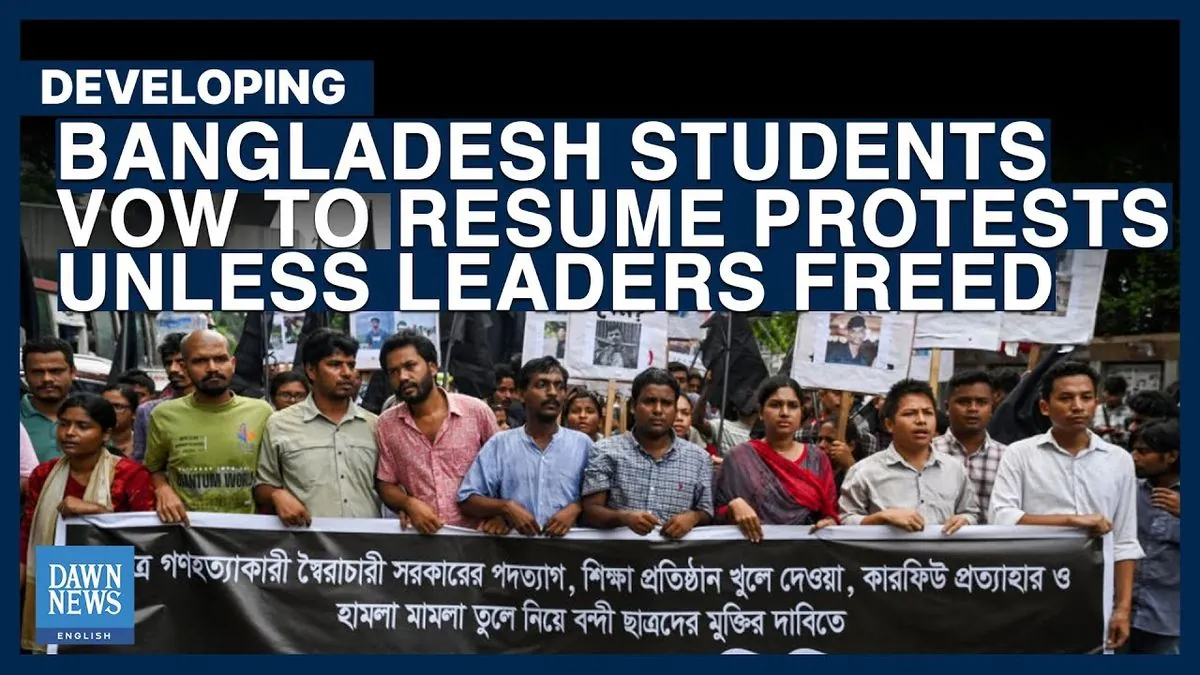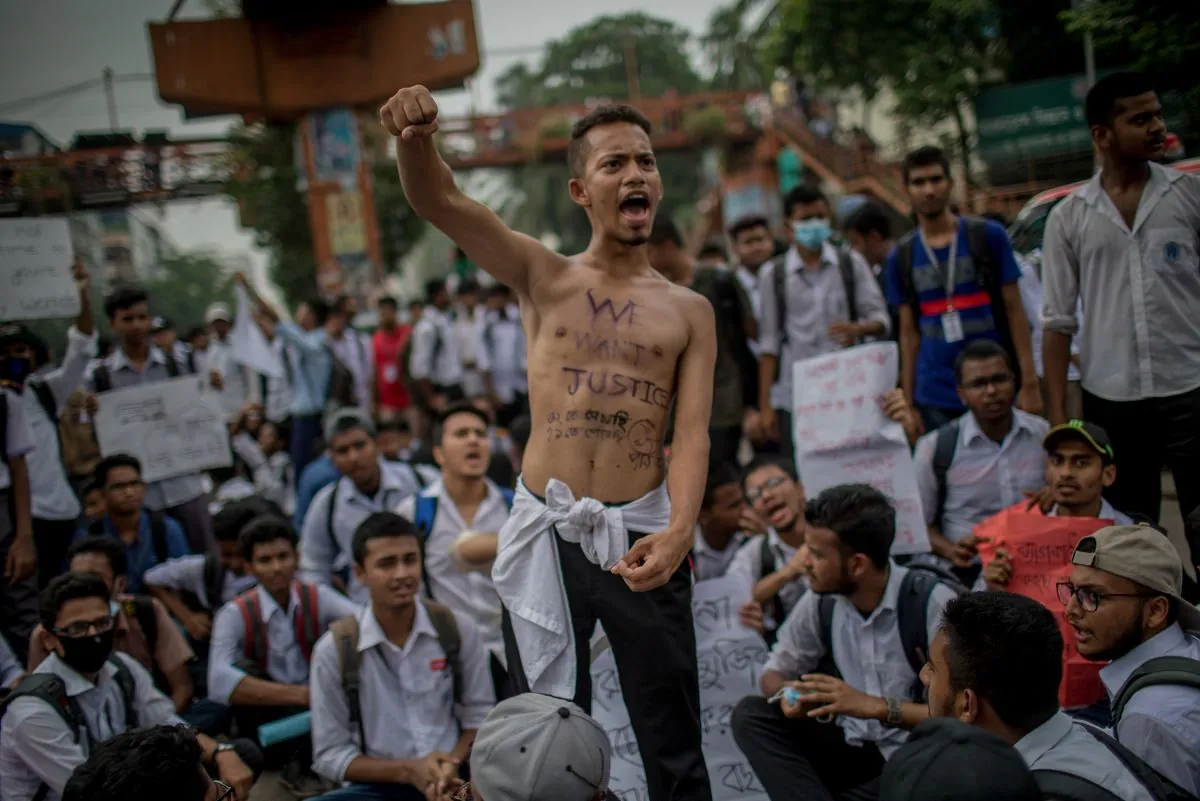Student-Led Protests Force Bangladesh PM's Resignation Amid Deadly Unrest
Sociology student Nahid Islam spearheads movement that ousts long-serving Prime Minister Sheikh Hasina. Nearly 300 killed in nationwide protests as Bangladesh faces political upheaval.

In a significant turn of events, Nahid Islam, a 26-year-old sociology student, has emerged as the key figure in a protest movement that led to the resignation of Bangladesh's long-serving Prime Minister Sheikh Hasina. The unrest, which began as a campaign against government job quotas, escalated into a nationwide call for political change.
The protests, which turned violent, resulted in the tragic loss of nearly 300 lives, predominantly college and university students. The unrest only subsided when Hasina stepped down and left for India on August 5, 2024, ending her 15-year tenure.
Islam, known for his public appearances with the Bangladeshi flag tied around his forehead, gained national attention in mid-July 2024 when he and other Dhaka University students were detained by police. Despite facing adversity, including alleged torture, Islam continued to lead the movement.

The student leader has proposed Nobel laureate Muhammad Yunus as the chief adviser for an interim government. Islam emphasized the students' commitment to creating a new democratic Bangladesh, focusing on life security, social justice, and political reform.
"We won't betray the blood shed by the martyrs for our cause. We will create a new democratic Bangladesh through our promise of security of life, social justice and a new political landscape."
Islam's stance reflects the aspirations of many young Bangladeshis for political change and improved governance. Bangladesh, the world's eighth most populous country with 170 million inhabitants, has faced numerous challenges, including political instability, corruption, and the impacts of climate change.
The ongoing situation highlights the complex relationship between Bangladesh's civil society, political establishment, and military. As student leaders prepare to meet with army chief General Waker-Uz-Zaman, the country stands at a crucial juncture in its political history.
This movement, described by some experts as potentially the first successful Gen Z-led revolution, occurs against the backdrop of Bangladesh's rapid economic growth and progress in poverty reduction. However, it also underscores persistent issues of governance and the desire for democratic reform.
As Bangladesh navigates this period of transition, the international community watches closely, recognizing the potential implications for regional stability and the country's future development trajectory.


































